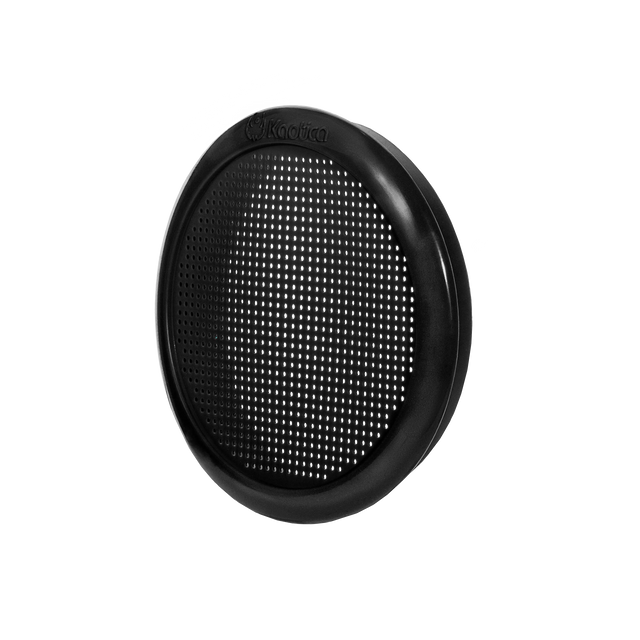
Joe Cipriano | VO Audition
In the highly competitive world of voice acting, securing a job ultimately comes down to Deal or No Deal. If you run the numbers, a large majority of people out there fall into the No Deal category, in a field where you can show up to 100 auditions and still not get a single gig.
But mention the name, Joe Cipriano, and people will tell you he is the Deal. As the in-show announcer for the show of the same name as well as Extreme Makeover Home Edition and working live TV events like the Grammys and the Emmys, Joe also does regular promos for NBC, ABC and CBS as well as Fox, who gave Joe his big break more than 20 years ago when they were just starting out. Joe is one of the few at the top of the voice acting food chain who are getting the “big time” work.
Kaotica: Looking back on your Italian roots and eating all these amazing things from Italy, take us back through your journey.
I actually grew up on the East Coast in Connecticut in a small town. I always dreamed of moving to Los Angeles and somehow getting involved in television and I wasn't sure how to do that or what that was going to be like. I was only barely 10, 11 years old and I was thinking about this.
So at 14 years of age I thought, ‘you know what, maybe radio is the way to go. Maybe if I get into radio that will lead me into television.’ So I call my local disc jockey at a radio station in Connecticut and hit upon a guy who was awesome. He invited me down to the station. He showed me how radio works and I began working there for free filing records.
I would go in on Saturdays and do anything that I possibly could do to just be at the radio station and just absorb all of it. They would let me go into one of the studios and I could record commercials. I could do make believe radio shows.
So it was really a masterclass in radio at such a young age. I was learning from these on-air personalities, who I looked up to and who were really the big stars in town. I had such great instruction and inspiration from these guys. And at that time in radio, we're talking early 70s, there weren't a lot of women that were in radio yet, so it was a bit of a boys’ club. Thankfully, that's changed over the years.
But I learned what radio was all about and it affected me in a positive way because it made me the kind of person that sets goals and I always taught students in voiceover about setting goals and how important that is. So, at the beginning of my career at 14, 15, 16 I set my goals for where I wanted to go and what I wanted to do in radio.
And I was very fortunate in that I moved on in radio. I moved to Washington D.C. and that's where I started to become aware of voiceover. I would hear these voices that would represent the big TV networks like ABC, NBC, and CBS. They had those great big voices and I thought, ‘Gosh, what a cool way to spend your life. What a great career to be working in Los Angeles, in Hollywood and representing a television network.’ And I set that as a goal for myself.
And so while I was in radio, I was learning more about voiceover work and was taking voice over workshops. And, little by little, I started to work in voiceover until I met my wife in Washington D.C. Both of us were in broadcasting so we moved to Los Angeles to pursue our careers: she in television as a news writer and producer and I in radio and hopefully voice over.
Kaotica: Thinking back to your younger self, what advice would you give to the 25 year-old you that could help someone overcome whatever situation you were dealing with at that time?
I think that when you're starting in voiceover it's natural that you want to move forward quickly. But when you do that you're skipping steps and you're not prepared for what's going to be happening in the future. So I always say to men and women that are getting into voiceover, don't skip the steps. Education is so unbelievably important to understand what you're doing with the script and learning how to interpret copy and taking acting classes.
Try to be as well-rounded as you possibly can with acting, with improv and with learning from pros on what to do with different forms of copy. Commercial copy is different than promo copy or trailer copy, e-learning or any of those. So it's very important to not try to rush it and I know sometimes we all feel that way. We want to get on with it. But the time that you spend on those basics and learning what is necessary and building that foundation, you can’t have a successful structure without first building that foundation and having that to rely on. It's so very important in building a voiceover career as well.
Kaotica: So what's next for the master class?
I love working with new talent. Through career consultation I'll work with talent at many different levels because mostly what I'm working with them at that level is not about copy, because I think there are great voiceover coaches in commercial and in all different genres of voiceover. I really don't work in that way with the talent that is just starting out or in the middle of their career. I can help them with setting goals, understanding what's going on in their careers, currently, and how they can move it forward. And I really enjoy looking at that overall sort of thing in someone's career.
When it comes to the promo masterclasses, that's something that I truly love doing. We've done two of them so far and we'll have some more coming up. What I'm looking for are talent that are already working in the industry and are already having some success in promos and they're looking for that next step. To get work in promos at a network level, cable level, syndication level. Where they can work on it regularly, whether it's weekly or monthly or daily. These are the kind of talent that I love having in the master classes because, as I tell them at the beginning of the class, it's about incremental little changes.
You are where you are right now and you are booking the jobs you are right now because you have something to offer. You're doing something right. And I think just making those little adjustments and working at reading the picture, which is what we do in promos, can make all the difference. And then you have adjustments for wild tracking something, which means you're not looking at video and you have no music whatsoever. They’re all different skill sets that are very important to push you over the top so that you get to that point where you can work in promo, in trailers, in syndication promos and a myriad of other opportunities on a more regular basis.
I think the important thing is to have these participants in the master classes work with folks that are working in the industry all the time. Not just voiceover talent but as producers, directors, casting people. I think it's important in the master class and at this level in their career that they start to get to know the people that are making the decisions every day. They are the ones that are listening to the demos. They're listening to the auditions. They're directing sessions. They know what's going on right now, what's happening and why you're getting booked. What they're looking for in a talent.
So the master class is that kind of a situation where you're going to get to work with people that are in the hiring positions, that are in the directing positions and work with world class talent all the time. And I just want that to rub off on the students and it seems to be working.
Kaotica: What would you say to someone who said, like you once did, ‘I want to be one of those big guys in voiceover when it would be so easy for them to say, ‘that’s ridiculous.’
I've talked about making goals and I think it's very important to know where you're going. I mean if you're aiming at nothing you're always going to hit it. There’s nothing to aim at so there's nothing that you can do to move you to that goal.
Sometimes when you set goals, people will say to you, ‘Really? you think that that you can do that?’ I always say surround yourself with positive people. There are always going to be some people around you that are negative and may say something like ‘well, there's already somebody doing that or ‘it's too difficult to get into that.’ These people might be looking out for you. They may even be people that love you and they don't want you to be hurt and they don't want you to get discouraged in your goals. They may have good intentions and you have to thank them for that. But at the same time you have to stay the course and look at your goal. You're always going to get more No's than Yes’s in this industry. It's happened to me throughout my career. It continues to happen to me every day.
I'll do audition, audition, audition. Quite frankly people ask me, ‘you still audition?’ Of course, that's how you get new business. I can do 80, 90 auditions and not get a job. But if I can get a job out of 90 auditions I'm happy because it's the only way that you get to meet new people in an atmosphere where you're creating the concept for how you're presenting this piece of copy. When you're in an audition situation, it’s probably the last time that you're in control.
When you get that piece of copy and there were specs on it, you can agree with those specs or maybe you see something else that can be done in the copy. But, in any case, you're the one in control. You can do what you want that will get you looked at, that will peak someone's interest, maybe put you in the second pile where they’re going to go back and listen again. But an audition is such a great opportunity to do whatever you think that is best for this piece of copy and what's going to get you through.
So when you hear ‘No’, when you hear people that say, ‘I don't know, there's a lot of people doing that’ you just have to believe in yourself and always trust your instincts. And I think when you do that it starts to build something that's very important in any career but especially in voiceover acting and that's confidence. Once you can achieve that level of confidence where you can walk into a situation and just know that ‘I've got this. I can do this.’ That's the tipping point. That's when your career really starts to take off.
Kaotica: What do you do when they say no?
If somebody says no or you don't hear back from an audition that's not the end of it. It's just that you weren’t what they were looking for that day. That same casting agency, that same producer, that same director, whoever it is, will be looking for other types and will have other concepts and other pieces of copy, other campaigns that they're casting for.
So just because you hear no on one piece of copy that you've read on or one campaign you've read on it really means nothing. You're going to hear from them again. You're going to get more opportunities to read for them. And it's just a matter of some days we like to have a hamburger, sometimes we like to have fish. It's just a choice that day. And so you just take those no’s and let them roll off your back and continue forward.
And again, what I always say is just trust your instincts, gain that confidence and keep moving forward. It's the ones that are persistent that really win the race if you want to call it a race. Persistence is what keeps you in the game. It's what keeps you auditioning. It's what keeps you working. Be the most persistent person in the room.



















